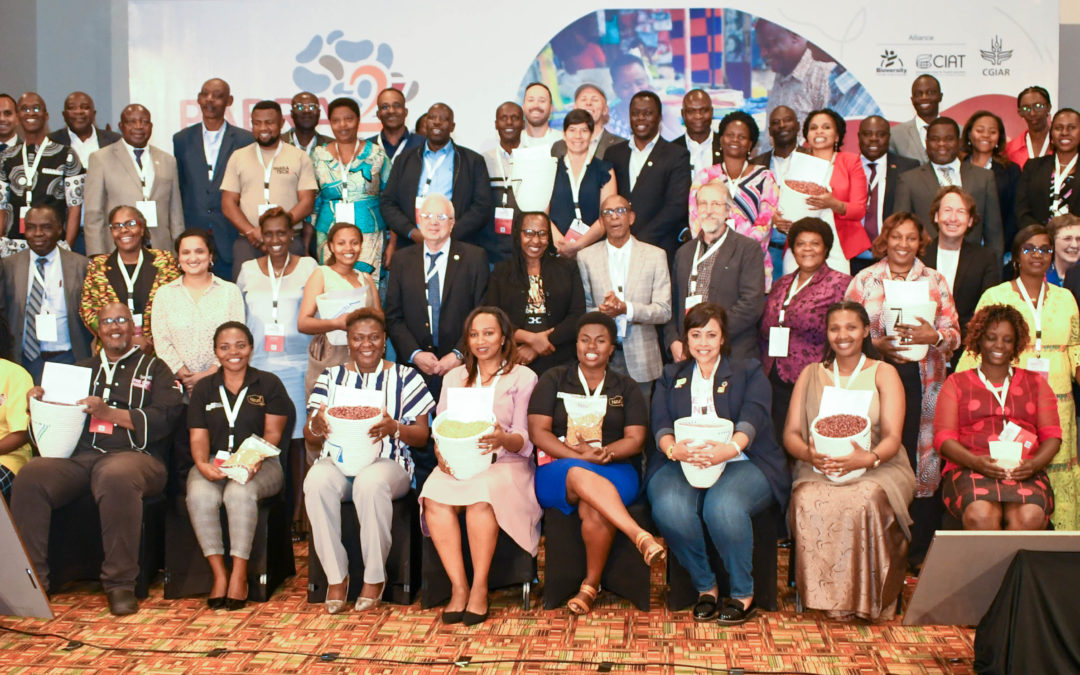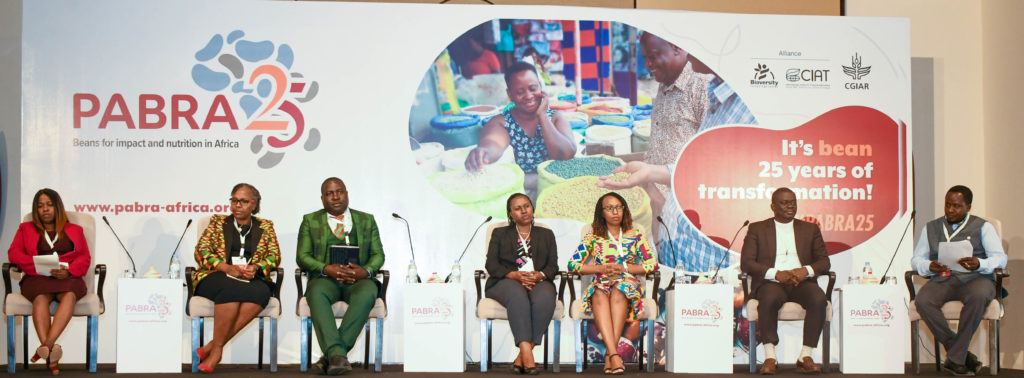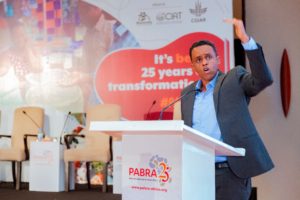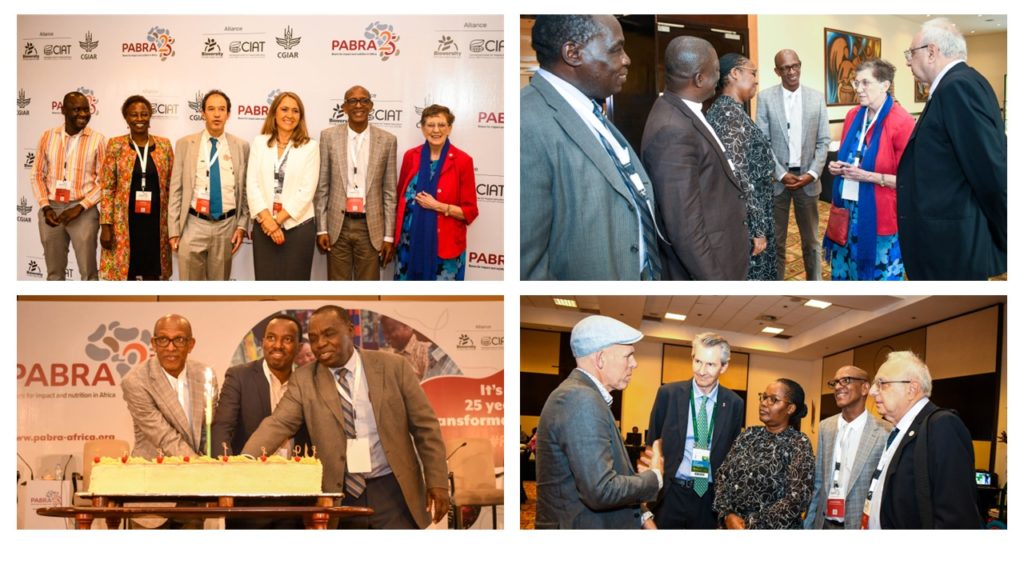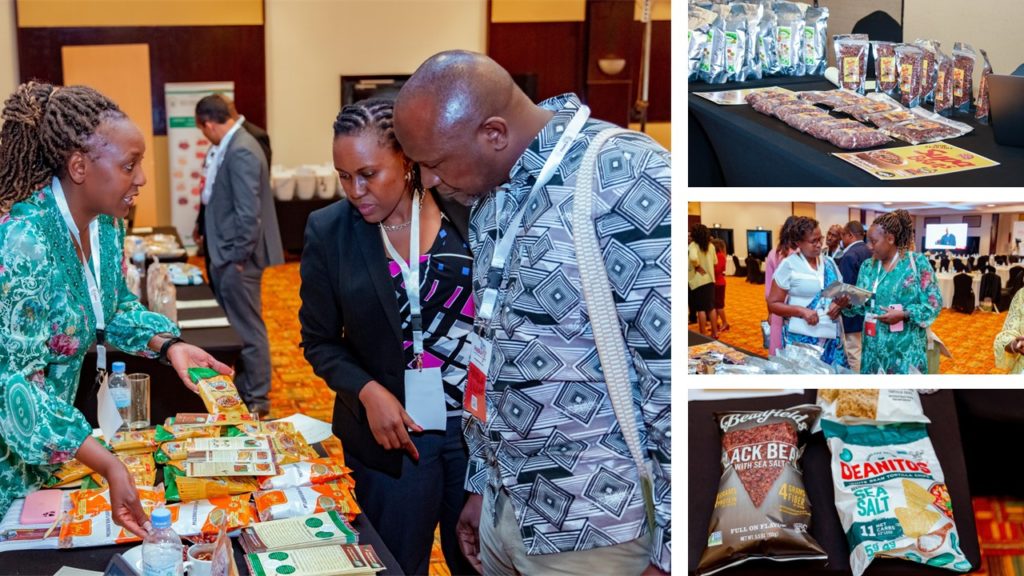During the inaugural AGRF meeting in Kigali Rwanda, Pan Africa Bean Research Alliance Improved yields, incomes and nutrition, from the beans.
“Hearing from the mothers and grandmother in Siaya county in Kenya of how the income from beans is paying for the children’s school fees is truly humbling and endearing.” remarked Nalan Yuksel, Head of Cooperation for the Pan Africa Development Programming, Global Affairs Canada in her keynote address.
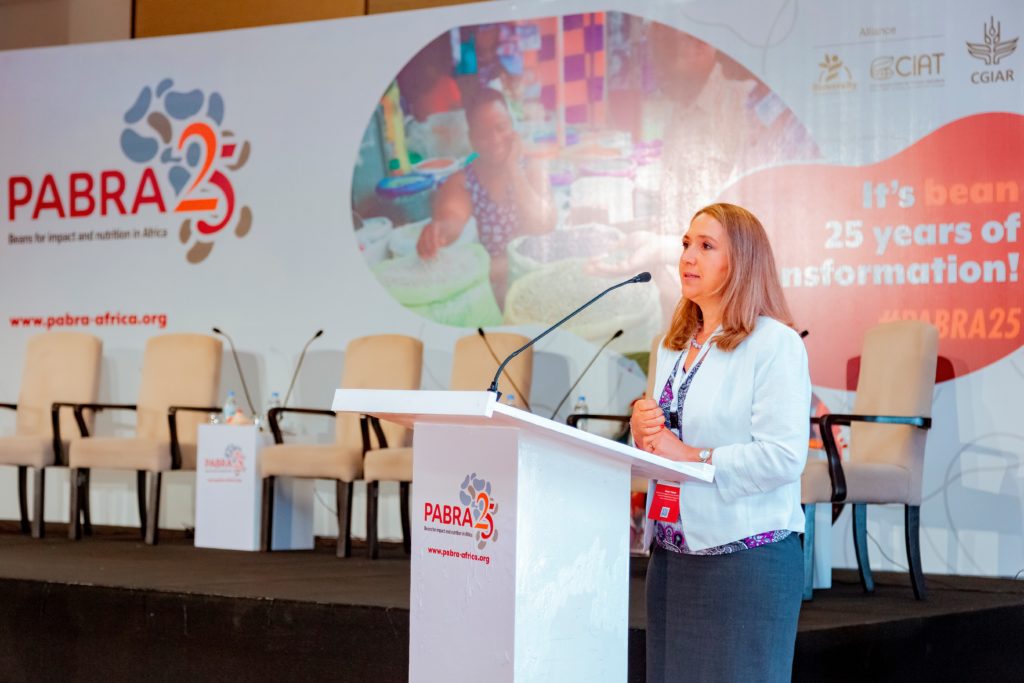
Ms. Nalan Yuksel, Head of Cooperation for the Pan Africa Development Programming, Global Affairs Canada
In a moderated panel discussion with PABRA partners from private sector seed company, Seed Co in Zambia, from various countries, the experiences were shared on how over the 25 years the development of the bean value chain has really grown to increase consumption of beans in the various countries Evolution of beans
Evolution of beans
As the market, we are guiding the research on how to answer to the consumer in terms of the breeding priorities in research. For example, we have the sugar bean that does not change color that is preferred in the market, We introduced Uyole seed – Yellow bean from Tanzania to Malawi and most of the women farmers are still growing the bean. That’s the power of the market. This partnership will propel great growth Gloria Phekani, Managing Director, Milele Trading in Malawi
Association for Strengthening Agricultural Research in Eastern and Central Africa (ASARECA), the sub regional covering East and Central Africa representative was present at the event. Speaking on behalf of Executive Director, Dr. Julian Barungi, Head of Policy, Advocacy & Market and Research at ASARECA emphasized the strong partnership that ASARECA and PABRA have been with the network since ECABREN became one of its members. “Bean was the first crop to be featured through the partnership. The contribution to improving food and security in Africa through the micronutrient beans promoted in Uganda and Burundi, without partnership. About 10000 women farmers have been linked to profitable markets. PABRA model could be an opportunity for other crop commodities other commodities. There is need to share and cross transfer of technologies and MAC 44 climbing beans are cutting across various countries.” She spoke.
The PABRA side event collaborated with the UN SDG 2 Advocacy hub and other partners. The BeanIsHow session was graced by Hon. Dr. Gerardine Mukeshimana, Minister of Agriculture, Rwanda, Dr. Patrick Karangwa – Director General, Rwanda Agriculture and Animal Resources Development Board (RAB) and other distinguished speakers from different sectors. Speaking at the event, Dr. Karangwa, says: “Through our partnership with PABRA, we have been able to develop systems that enable more farmers and consumers to benefit from the beans.
Through our partnership with PABRA, we have been able to develop systems that enable more farmers and consumers to benefit from the beans, integrating value chain to markets for local, national, and international impact. Using good agricultural practices, farmers are able to grow enough beans for their own families and to sell. This provides an opportunity to empower themselves economically while feeding their families, community and beyond.”
Hon. Hussein Mohamed Bashe, Minister of Agriculture in Tanzania, is impressed by the transformation through TARI Selian. “The success story of the research and development, bean was just a crop in Tanzania with 1.2 million tons of beans annually with an export value of US$ 2million How do we integrate the same efforts for other crops. We can preposition beans as a nutrition and income crop. 10% of agriculture funds have been allocated to research and beans is critical because it has created more jobs, Jesca is a popular variety and will. Global population growth is an opportunity to boost food production.’’ He added.
Ruben Echevarria, Senior Advisor, Bill and Melinda Gates Foundation shared his experience working with the Alliance formerly CIAT as the Director Generaland the impact beans have been to the globe. He lauded the efforts PABRA has put in the last 25 years in the research for beans.
“We need to build strong value chains. Most of the beans grown in the region which are biofortified are from Rwanda. Over 90pc of households in Rwanda grows beans, CIAT – PABRA is the oldest CGIAR centre in Rwanda and that has yielded many varieties in the country. We have released various bean. The beans have been exported to other countries from the germplasm developed in Rwanda. We have increased bean production and productivity over the year, but we want to develop the seed systems of beans. To increase productivity we need to work with farmers to adopt them in a robust seed system. Beans is quickly becoming an income generating crop hence need for a robust market system since beans is globally considered a superfood! I am proud that PABRA chose Rwanda to celebrate their anniversary because of this is the home of beans! Remarked Hon Dr. Gerardine Mukeshimana, Minister of Agriculture and Animal Resources who was in attendance.
Also at the event from CGIAR was Dr. Claudia Sadoff, Managing Director and Dr. Juan Lucas Restrepo, Director General of Alliance of Bioversity International and CIAT who made their remarks at the event were elated on the contributions beans have made globally. Dr. Eric Huttner from Australian AgricACIAR, Prof Gabrielle Parsley, University of Queensland.
Jean Claude Rubyogo, Director PABRA concluded by a presentation on the future of PABRA and what to look forward especially with global demand for beans growing due to population increase, urbanization hence preference for bean-based products that are convenient yet nutritious.
The full coverage: https://www.youtube.com/watch?v=F0xTqN2gtSg&t=4281s

